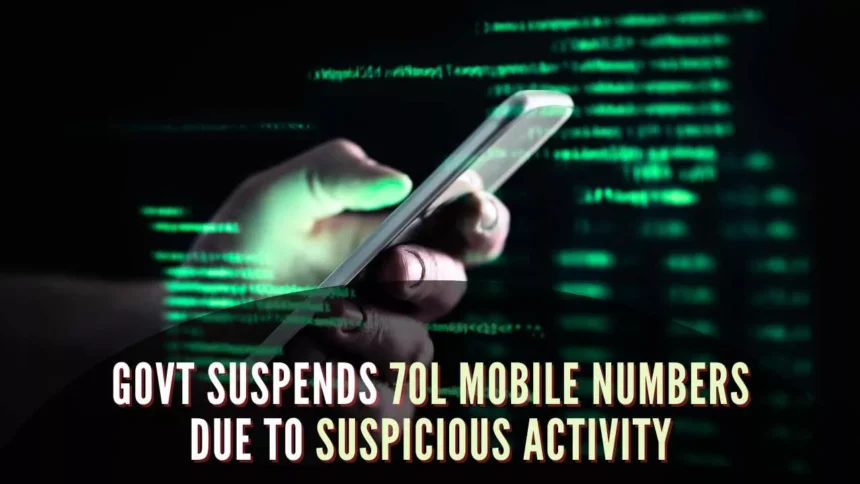Financial Services Secretary Vivek Joshi said that the Indian government has disconnected 70 lakh mobile phones linked to financial fraud and cybercrime as part of a proactive effort to stop digital theft. In addition to constant efforts to increase awareness and shield customers from becoming victims of cybercrime, the government seeks to strengthen the financial system and procedures to improve cybersecurity.
Disconnecting a mobile number is a strategic move.
Seventy lakh cellphone numbers tied to financial fraud and cybercrime have been effectively unplugged by the government, under the direction of Financial Services Secretary Vivek Joshi. This action protects people against possible financial losses as part of a larger effort to crack down on digital fraud.
2. Benefits and Savings: A Big Impact
It is estimated that the disconnection of these cell phones has helped over 3.5 lakh victims by saving about Rs 900 crore of money that was stolen. This illustrates how well the government is doing its part to stop financial fraud and safeguard citizens’ interests.
3. Increasing Cybersecurity Observations: A Joint Method
Joshi emphasized the necessity for banks to improve their procedures and systems in order to successfully combat cyberattacks. In order to strengthen the capabilities of all authorities working together to prevent cyber fraud, the government places a strong emphasis on improved collaboration. The next meeting on financial cybersecurity and digital payment fraud is set for January. These meetings will persist.
4. Fraud involving KYC Standardization and the Aadhaar Enabled Payment System (AEPS)
The standardization of Know Your Customer (KYC) for businesses and worries about Aadhaar Enabled Payment System (AEPS) fraud were also discussed during the conference. Data protection has been emphasized, and states have been requested to look into the AEPS issue.
5. Sector Best Practices: Perspectives from Major Players
During the discussion, representatives from PayTM, Razorpay, and State Bank of India (SBI) discussed their knowledge and best practices. Through the presentation of its Proactive Risk Monitoring (PRM) strategy, SBI advanced our knowledge of how financial institutions might reduce the risk of fraud.
In summary, the government’s determined attempts to counter cyber threats are demonstrated by the steps it has taken, such as disconnecting mobile numbers and continuing cooperative efforts. These steps are essential to maintaining the security and reliability of India’s financial ecosystem as the number of digital transactions rises.



